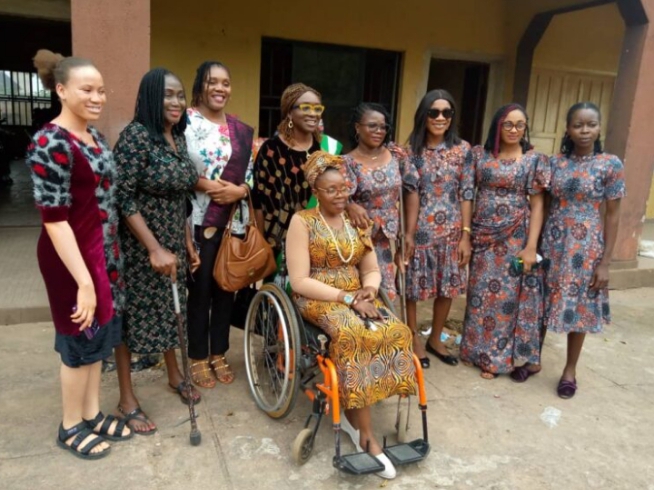The Association of Anambra State Women with Disabilities (AASWOWD) has called for improved and inclusive healthcare service delivery for people living with disabilities (PWDs).
Chairperson, AASWOWD, Ms Ncheta Nwanokwara, made the call at the association’s annual August meeting on Saturday in Awka.
The event had the theme, “Ensuring an Accessible and Inclusive Reproductive Healthcare System for Women with Disabilities”.
Nwanokwara said that women with disabilities had continued to face barriers and discrimination when trying to access medical care in the state.
She identified systematic barriers, discriminatory attitude and challenge of accessibility, especially availability of ramps and adjustable beds in some health facilities, lack of sign language interpreters and readable information materials.
According to her, the barriers prevent many women from receiving quality healthcare services in the state.
“Reproductive healthcare is a fundamental human right, yet women with disabilities are often denied this opportunity.
“We have continued to face these barriers and discrimination, but we have also made important strides in raising awareness and advocating for a more inclusive reproductive and healthcare system.
“We are calling on relevant stakeholders in the health sector in Anambra to increase investment, improve infrastructure, and enhance training for healthcare providers.
“More importantly, there is a need to build a future where every woman, regardless of her disability, can access quality, dignified, and empowering reproductive healthcare she deserves,” she said.
Also speaking, Dr Ogochukwu Ofiaeli, President, Medical Women’s Association of Nigeria, (MWAN) Anambra chapter, urged public institutions to implement the state Disability Rights Law by making their infrastructure accessible to all.
Ofiaeli also advised PWDs to seek knowledge to improve their health status and economic sustainability.
In her address , Ms Blessing Nnaeme from Achieving Health Nigeria Initiative, described accessible and inclusive healthcare system as one that provided high-quality, respectful and equitable care to all without discrimination.
“Inclusive reproductive healthcare includes ensuring that medical facilities are physically accessible with ramps, elevators and wide doorways, and offering accessible communication methods such as sign language interpreters and braille materials.
“Also, work with your healthcare provider to create a personalised health plan that considers your disability and any specific accommodations or modifications you might need,” she said.(NAN)


